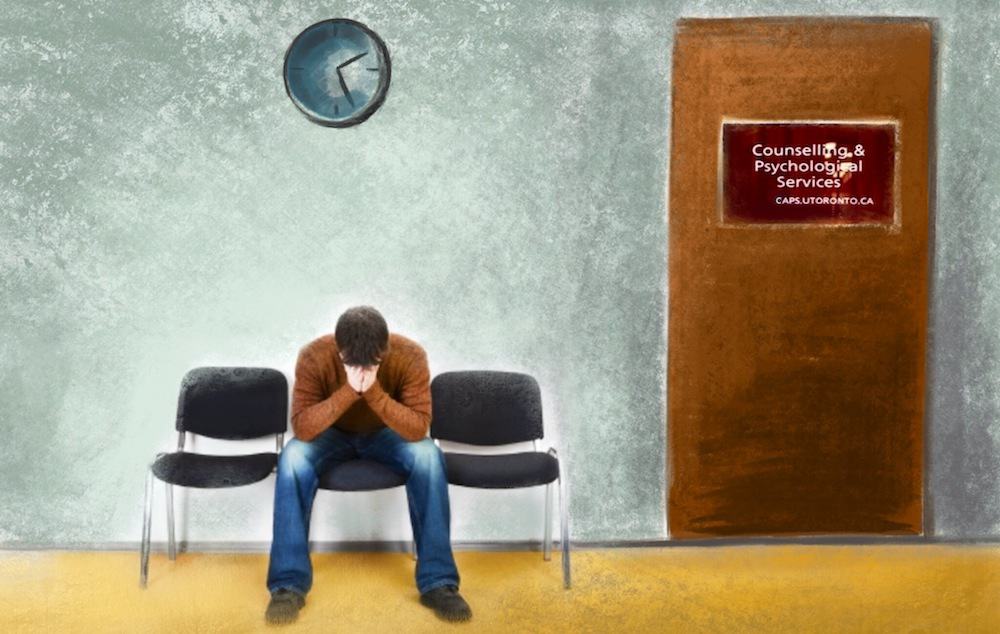It takes a lot of courage to pick up the phone.
One of the most challenging parts of living with a mental illness is the fact that most people do not want to admit they have one. Mental illness can be demeaning and defeatist. You tell yourself to give into stress, worry, and depression. It takes time from the moment that you admit you have a mental illness to arrive at the decision to do something to rectify it. The majority of individuals suffering with mental health issues will never be diagnosed or never work to remedy their circumstances because they are too scared or too uncomfortable to approach somebody. Picking up the phone and seeking help is the first move towards managing mental health. At U of T, calling Counselling and Psychological Services (CAPS) does not seem to commence your recovery process — and, in some cases, it makes the process more difficult.
U of T is often regarded as the Harvard of the North because of the institution’s prestige, academic and research excellence, and the variety of our facilities. Yet, the students are unhappy. Mental health awareness receives a lot of attention on campus through advertising. “Blue Space” posters have been put up in many public spaces, telling students that U of T is a safe space for those facing difficulties with their mental health. However, many students have indicated that they do not experience the university as such in personal interviews, as well as earlier this year in the “How does U of T make you feel” project, wherein a bulletin board was set up at Sidney Smith asking students about their experiences at the university. The project saw hundreds of students respond with messages about the overwhelming stress levels, the feelings of anonymity, and the isolation.
We came into university expecting these things to some extent; after all, higher education comes with its own challenges and responsibilities. What we did not expect, however, was the lack of support to help us deal with the pressure inside our minds.
Getting through to CAPS is hard enough in the first place, but the stress and isolation are amplified during the several weeks wait before students are given appointments. During an interview, one student stated that it took her months to contact CAPS and, after she was told the first time that it would take a few months for her to hear back, she lost hope in the university system helping her at all. Other students have similar stories where they have had to resort to alternative measures, such as hospitalization, before they were able to find any support from U of T’s mental health service.
This brings to question why the university is not addressing this gap in student services. Most students do not blame CAPS for their lack of availability due to the short staffing, limited hours in the year, and a cap on appointments, but instead place responsibility upon the university. For such a large, well-funded university, it seems like mental health awareness is treated as tokenistic — a tick on a checklist of services every university must provide. The health services act like businesses, where the motivation to go to an appointment is not due to a desire to get better, but because each missed appointment is $60 out of your pocket.
Something needs to be done to bring the various mental health-related student groups and professional services together and to take initiative to set up a centre that caters swiftly and adequately to to the needs of all students. The university needs to direct some funding towards supporting our health and towards providing staff and faculty with adequate protocol for aiding students who may be suffering from mental health issues. While Accessibility Services successfully provides students with health issues with aid and accommodations, the journey towards wholly addressing mental health issues at U of T remains long and arduous.
Pratishtha Kohli is a third-year student at Woodsworth College studying psychology and criminology.


